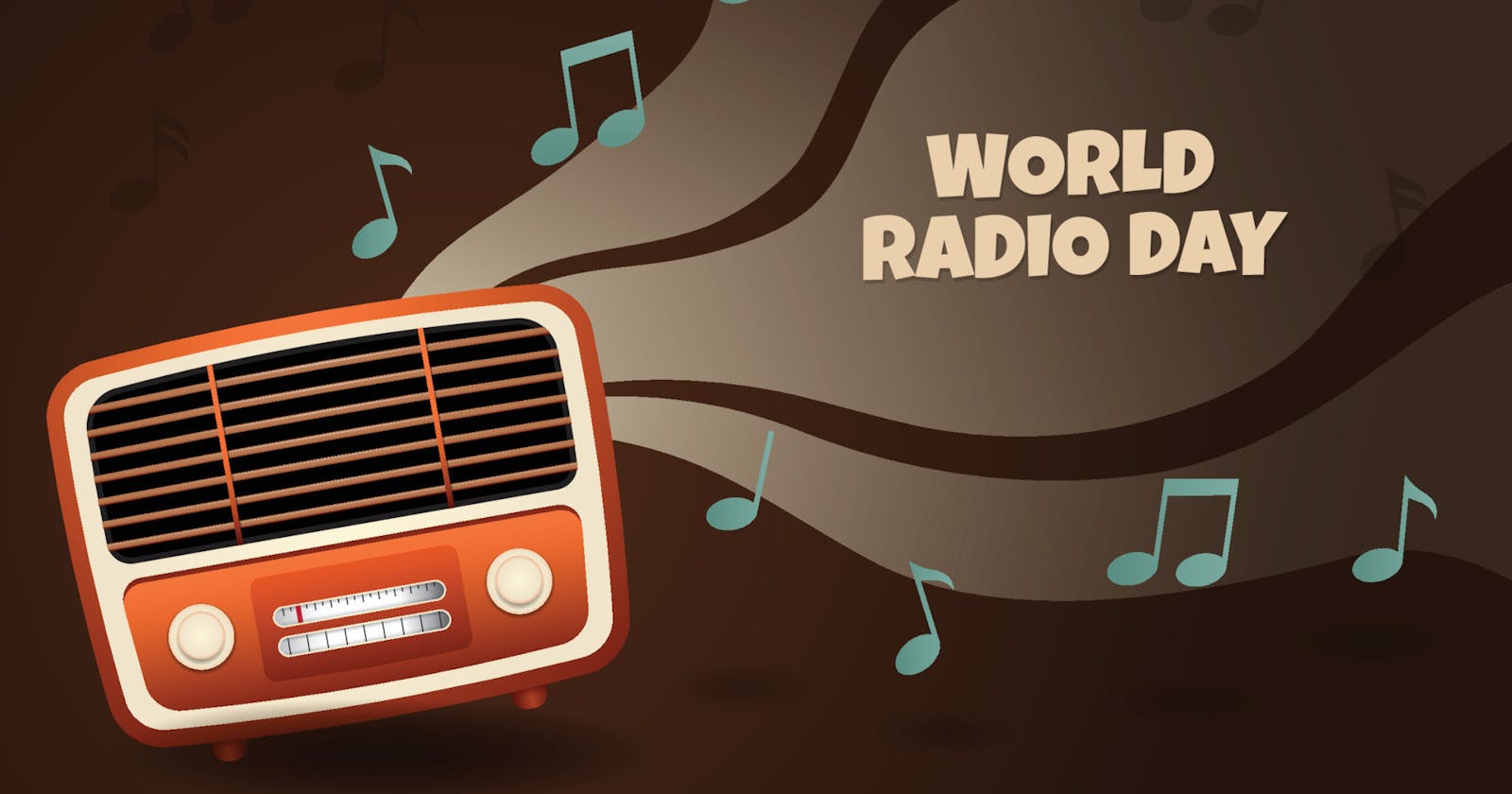"On this World Radio Day, let us celebrate the diversity of voices and perspectives that make radio such a rich and valuable medium. Happy listening!"
Every year on February 13th, we mark World Radio Day, which is a poignant reminder of the radio's ongoing strength and importance in our lives. Despite the prevalence of visual media and the internet, radio is a timeless medium that fosters cross-cultural and cross-linguistic communication. With a rich history spanning more than a century, radio has developed from a straightforward medium for communication to a versatile tool for social change, education, information, and entertainment.
At its core, radio possesses a unique ability to reach remote and marginalized communities where other forms of media struggle to penetrate. Its accessibility, affordability, and simplicity make it an indispensable companion for millions around the globe. Whether in bustling urban canters or rural villages, radio broadcasts provide a lifeline of information on topics ranging from news and weather updates to health advisories and educational programs.
Its adaptability is one of radio's most amazing features. It provides a forum for a range of voices to be heard, overcoming limitations posed by technology and literacy. Radio gives voices an opportunity to be heard, whether they be those of community activists, local storytellers, singers, or investigative journalists. It acts as a spark for social mobilization, encouraging communication, comprehension, and unity among groups facing social, political, and economic difficulties.
Moreover, radio has proven to be a resilient medium, adapting to technological advancements and changing audience preferences. In an era dominated by streaming services and podcasts, traditional radio stations have embraced digital platforms to expand their reach and engage with new audiences. The rise of internet radio and podcasting has further democratized the airwaves, allowing individuals and organizations to produce and distribute content with unprecedented ease.
Notwithstanding these developments, radio still faces several obstacles in a media environment that is becoming more and more competitive. Government control, censorship, and media consolidation pose serious challenges to press freedom and radio broadcasters' independence across the globe. Additionally, many traditional radio stations have been pushed to reevaluate their business models and programming plans due to changing audience demographics and economic challenges.
Nevertheless, the enduring popularity of radio underscores its enduring relevance in the digital age. Whether through traditional broadcasts or online streaming, radio remains a trusted source of news, information, and entertainment for millions of listeners worldwide. Its ability to foster a sense of community and belonging transcends cultural and linguistic boundaries, making it a truly global medium for communication and expression.
On this World Radio Day, let us celebrate the enduring legacy of radio and its profound impact on our lives. Let us recognize the tireless efforts of broadcasters, journalists, and volunteers who work tirelessly to keep the airwaves alive with diverse voices and perspectives. As we embrace the digital age, let us also reaffirm our commitment to preserving the integrity and diversity of radio as a vital pillar of democratic society.

In conclusion, World Radio Day serves as a timely reminder of the enduring power and influence of radio in our lives. From its humble beginnings to its current status as a global medium for communication and expression, radio continues to inspire, inform, and unite people across the world. As we navigate an increasingly complex and interconnected world, let us cherish the timeless legacy of radio and the profound impact it has on our lives and communities.
Okay, that’s it for this article.
Also, if you have any questions about this or anything else, please let me know in a comment below or on Instagram, Facebook, or Twitter.
Thank you for reading this article, and see you soon in the next one! ❤️

